کرس Grinter کی طرف سے, مئی 30th پر, 2010 شاذ و نادر ہی بار بار ابھرتے کوئز سیریز کے لئے, یہاں ایک نئی تصویر ہے. اس کیڑے کون ہے?
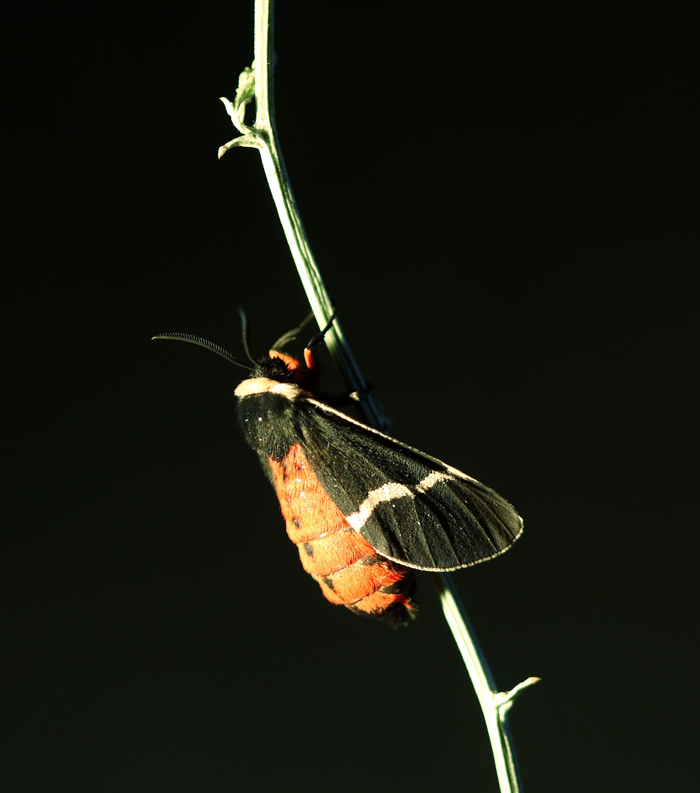
کرس Grinter کی طرف سے, مئی 25th پر, 2010 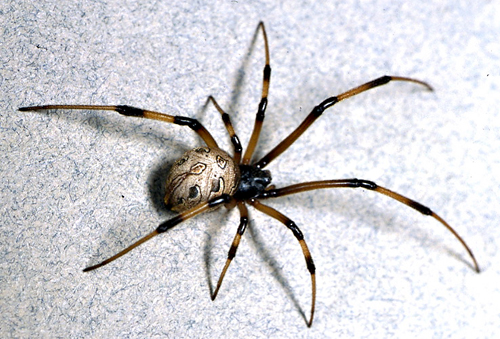
ان Californians کی پڑھنے کے لئے, جنوب میں، خاص طور پر ان لوگوں کو, اس خوبصورت چھوٹی مکڑی کے لئے ایک آنکھ باہر رکھنے, Latrodectus geometricus – براؤن بیوہ. یوسی دریا کے کنارے میں Arachnologists اس ناگوار پرجاتیوں کے پھیلاؤ کی نگرانی کر رہے ہیں. ستم ظریفی یہ ہے کہ یہ ہمارے آ سیاہ بیوہ کے طور پر کے طور پر خطرناک نہیں پتہ چلا. بہر حال, یہ ان کے یہاں راؤنڈ 'سے نہیں ہے پارٹس (تمہارا سب سے جنوبی twang کو میں کہنا چاہیئے). آپ ایک نمونہ تلاش ہے تو, آپ LA / اورنج میں نہیں ہو خاص طور پر اگر / ایسڈی کاؤنٹیز, آپ کو کرنا چاہئے رابطے UCR میں ٹیم.
کرس Grinter کی طرف سے, مئی 25th پر, 2010 کوریا ایک گرم جنگ کے کنارے پر teetering کے ساتھ, بے مثال تناسب اور جمیکا میں سول بدامنی کا ایک ماحولیاتی تباہی (کسی کو ان کی مدھر harshed) – صرف دوسرے ذرائع سے آج شہ سرخیوں میں سے چند ایک کا نام – سی این این اس کے سامنے صفحے کو fluff کے لئے وقت لگتا ہے.

I usually get a little excited when I come across articles like this because I always have hopes for something so ridiculous it has to be discussed. Thankfully CNN is run by teams of drunken marmosets who like to fling crap at us. Before the Skeptical Moth epoch I would share links to cover page stories on the findings of bigfoot, chupacabra and aliens with just a few friends or spread it around facebook. Now I can ridicule CNN on a google archived medium.
I just do not understand the point of this article. John Blake doesn’t discuss an explanation for this phenomenon, offer an opinion, or ask any questions. اس بات کا یقین, he asks if God really cares who wins, but that question isn’t any more valid than asking if my dog (also fictional) cares what kind of car I drive (unless of course it is psychic! Seriously…people believe this). When I read articles like this I feel as if I am grading papers in a high school english class. There is no journalistic integrity, intelligent opinion or factual basis for the scribbling – there are just pretty pictures and words illustrating them. Setting the whole prayer and faith issue aside; athletes have always been known for their superstitions (another). دی “acceptance speech” phenomenon undoubtedly falls under this category. After achieving a statistically small outcome (دیکھیں hot hands), they are afraid of forgetting God in fear of magically losing their ability (not necessarily consciously). For some reason Blake restrains this article to only sports – perhaps he is intentionally playing into the massive demographic of American sports loving, bud-light swilling, christians – but clearly this is a reoccurring theme. At any awards ceremony God, Jesus or Allah is usually at the top of the thank-you list. Forget all that hard work and talent you might have, it was something or someone else. Abandoning all rational thought to a mystical being is a dangerous thing. This mindset is the same one that allows addicts to blame anyone but themselves (even if addiction is in part hard-wired), believe in faith healing, start a holy war, or let the Catholic church blame the devil.
CNN is flashing the lights and jingling the keys over the faces of their readers. Usually I leave it up to FOX news to insult my intelligence, but I am glad to know I have a choice in this market.
کرس Grinter کی طرف سے, 24th مئی پر, 2010 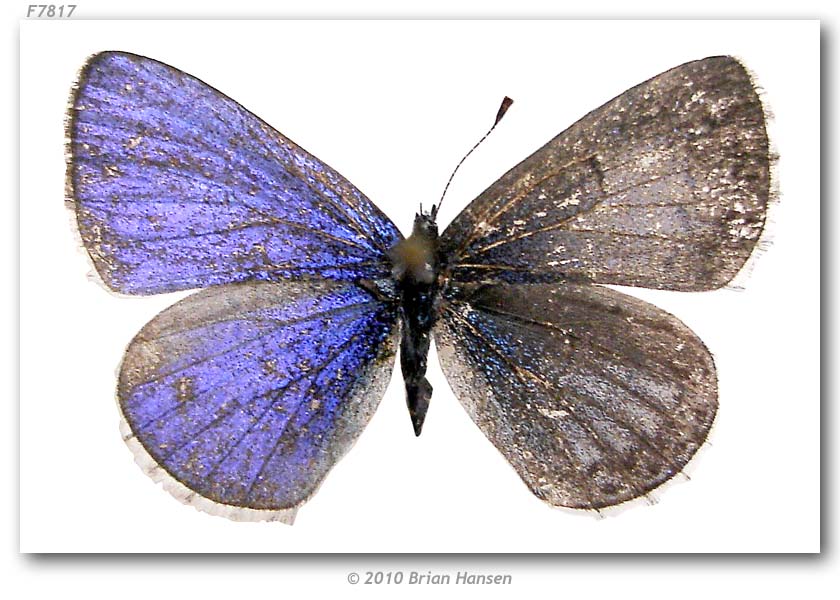
زندگی بھر موجودگی میں ایک ایک بار, a bilateral gynandromorph. مختصر میں, سیل فرق کے دوران ایک خرابی غیر متناسب گنسوتر پیٹرن پیدا کرتا ہے, جس بالغ کیڑے میں غیر متناسب جنسی اظہار کی طرف جاتا ہے. اگر آپ مندرجہ بالا لنک پر کلک نہیں کیا ہے, ایسا, یہ کچھ خوفناک تصاویر کے ساتھ ایک بہترین وضاحت ہے.
واپس تیتلی کرنے کے لئے. I was in the field this March just above the middle fork of the American River on the hunt for Xanthothrix, with me was Brian Hansen and Bob Patterson. Bob and I were on a mission, to locate a remote patch of Coreopsis high on serpentine soils, and to find our rare little moth. Brian came along to enjoy the day and explore the butterfly fauna. While Bob and I hiked ahead anxious to see if the days hike would be worth it, Brian stopped frequently to net passing leps. It was probably less than an hour out from the car when we hear form behind us on the trail “Hey guys… I think I just caught a gynandromorph!!!” ٹھیک ہے, I was skeptical. Bob and I approached to see Brian holding a little blue in his hand, which unmistakably, was a bilateral gynandromorph. I was blown away. Bob has over 50 years of experience as an avid lepidopterist and has never seen one of these in the wild. To make this feat even more impressive, this small blue butterfly is one of the commonest insects in the American west in the spring. آج, they were puddling in great numbers along the trail, and I hadn’t even stopped to blink at one. Brian just netted a one in a million catch. Perhaps it is the curse of a jaded lepidopterist that will keep me from such once in a lifetime discovery; but I know I will be looking closer at even the commonest butterfly as it wings by me.
So as you can see the butterfly is exactly half male and half female (the right side is female). If you look very closely you can even see a perfect vertical line bisecting the body if the insect (looks like a photoshop edit almost), gynandromorphism after-all is expressed throughout the entire body and even the genitalia are contorted into strange shapes.
The specimen is in Brian Hansen’s personal collection, and you can find the images hosted on the Butterflies of America website.

کرس Grinter کی طرف سے, مئی 23rd پر, 2010 
قدرتی طور پر, it was named Phallus drewsii. This comes form the list of the top 10 species named میں 2009, ایری زونا سٹیٹ یونیورسٹی کی طرف سے عمل (نہیں ایک بہت اچھی فہرست ہے تو 7 میری نئی پرجاتیوں کی پر وہاں نہیں تھے…). While I tend to avoid phallic and O’Keeffesque botany, this one I couldn’t resist because it was named after someone from my own institution. ڈاکٹر. Robert Drewes now has a small phallic fungi named after him (with permission). Taxonomy humor at work.
کرس Grinter کی طرف سے, مئی 18th پر, 2010 
Has just been posted over at صدر بش میں برنگ. جاؤ اور تازہ ترین کیڑے کارنیول کی, گزشتہ ماہ یا اس سے زیادہ ایک یا دوسرے راستے میں کیڑا شامل ہے کہ بلاگز کے ایک اجتماع.
کرس Grinter کی طرف سے, مئی 18th پر, 2010 بھارت کی طرف سے میں خبریں, ایک تیتلی کے فوٹو گرافر کو اغوا کر لیا گیا ہے. شمال مشرقی صوبے اروناچل پردیش کے دورے پر گیا تھا جو ایک مقامی پارک سرکاری مسلح نوجوانوں کے باغیوں کے ایک گروہ کی طرف سے رات کے وقت لیا گیا تھا. اسے تلاش کرنے کی کوشش موسم اور دور دراز علاقے کی طرف سے متاثر کیا گیا ہے. India has recently become one of the most difficult countries to conduct research in, and now we are all reminded of its continuing history of violence. Often it is within the remote and wild portions of a developing country that harbors both stunning biodiversity and militant dissidents. While in Ecuador my group kept an eye out for Columbian FARC rebels who may have strayed across the border; thankfully it was only a minute possibility they would be there in the first place, and nothing was seen. I think some of my most harrowing field work has been along the US-Mexican boarder states and in Mexico itself. Drug runners would rather shoot you before asking you to move out of their way, and roaming banditos were responsible for a murder of a colleagues friend in Oaxaca years ago. حیرت کی بات نہیں۔, the lure of untapped biodiversity keeps pulling us in. Stay safe in the field!
کرس Grinter کی طرف سے, 5th مئی پر, 2010 ایک طویل اختتام ہفتہ کے دوران میں میدان میں باہر ہو جائے گا. رہو ناقابل یقین کہانیاں کے لیے دیکھتے (یہاں کوئی hype کے…).
میں نے دوسرے بہترین بلاگرز سے مندرجہ ذیل لطف اندوز ہوں جبکہ:
Continue reading Gone Collecting
کرس Grinter کی طرف سے, 5th مئی پر, 2010 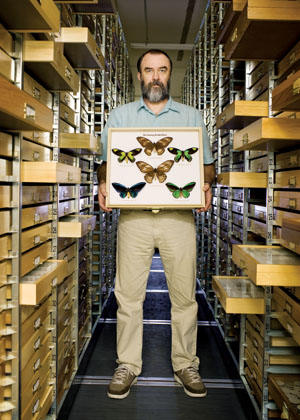 یہ ایک وقت میں ایک changeup ہر ایک پھینک اچھا ہے, and this week here is an article that is actually GOOD. جی ہاں, آپ سب سے پہلے اسے یہاں پڑھ, a positive article about entomology collections. We all need a breather after that Fox news fiasco with the Michigan State collection. The Honolulu Magazine does a really great job (hey… I knew that title sounded familiar… it’s a book by مئی بیرن باؤم) and they actually seem to get it. There are some great quotes from Dr. Neal Evenhuis (pictured) and Shepherd Myers; go read about the Bishop Museum’s collections and the awesomeness of being an entomologist on one of the most beautiful places in the world. اصل میں, Neal, need a curatorial assistant? یہ ایک وقت میں ایک changeup ہر ایک پھینک اچھا ہے, and this week here is an article that is actually GOOD. جی ہاں, آپ سب سے پہلے اسے یہاں پڑھ, a positive article about entomology collections. We all need a breather after that Fox news fiasco with the Michigan State collection. The Honolulu Magazine does a really great job (hey… I knew that title sounded familiar… it’s a book by مئی بیرن باؤم) and they actually seem to get it. There are some great quotes from Dr. Neal Evenhuis (pictured) and Shepherd Myers; go read about the Bishop Museum’s collections and the awesomeness of being an entomologist on one of the most beautiful places in the world. اصل میں, Neal, need a curatorial assistant?
کرس Grinter کی طرف سے, مئی 4th پر, 2010
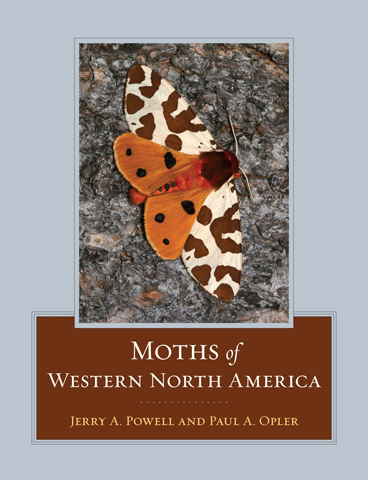
آگاہ نہیں ہیں وہ لوگ جو, ایک نئی کتاب پچھلے سال کے آخر میں مارکیٹ مارا. “مغربی شمالی امریکہ کی کیڑا“, پاول اور Opler. صرف $95 کہ ہر صد کے قابل ہے (یا $75 ای بک کے لئے, لیکن میں نے ای کتابیں نفرت). It’s a remarkable tome and the first of its kind for the western states. Not only is it a spectacular reference, but it sets the bar for all insect books. نہیں, not every moth in the west is in there (that would break my desk and wallet at over 6,000 پرجاتی), but almost one of every genus and common or remarkable species has a photograph, life history and distribution. Most importantly it covers microlepidoptera. I grew up on the eastern counterpart, Moths of Eastern North America by Covell. I had two copies, one for the field and one for my desk – and had to replace the field copy at least once. It was a great book, but Powell and Opler have run laps around it.
The other good news is you can now access all 1,228 moth illustrations and corresponding data online for مفت. Go to CalPhotos and search for Powell, یا click here. The nice part about this is the somewhat smaller microlep photos in the book are available in high-resolution for better identification. Beautiful addition to the reference and easier than sending everyone a CD.
|
شکوک و شبہات
|









